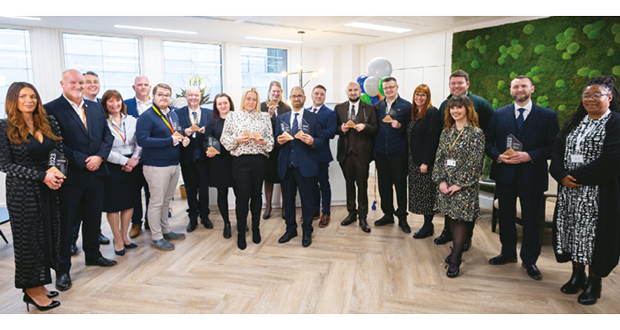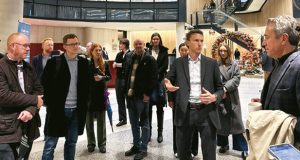 Invest in social mobility to create career opportunities and sustainable employment, says Toni-Marie Vaughan, Head of Social Mobility, OCS UK
Invest in social mobility to create career opportunities and sustainable employment, says Toni-Marie Vaughan, Head of Social Mobility, OCS UK
Social mobility should be considered a key investment as it is not only important for hiring practices, but helps breakdown barriers and provides opportunities for individuals that might otherwise be overlooked.
Our social mobility programme covers everything from ensuring diversity and inclusion is considered in our recruitment strategy, to supporting individuals from vulnerable backgrounds and building apprenticeship schemes that offer real value to candidates. The other side of this, of course, is investing in our current colleagues by providing upskill opportunities as well as tapping into other funding schemes that support sustainable employment.
PUTTING SOCIAL MOBILITY INTO ESG
The emphasis on ESG continue to grow. For our FM contracts in the public sector, for example, ESG can now weigh up to 20 per cent of the tender bid. ESG on its broadest level represents environmental issues, social issues and corporate governance. While social mobility as it can often be viewed as a ‘soft issue’, it impacts everything from recruitment through to the nurturing of talent by supporting diversity, equality and inclusion. It’s not only good for business but it’s the right thing to do, morally.
To ensure we have meaningful initiatives in place, we are partnered with over 40 social enterprise groups which enable us to contribute positively to our colleagues and the communities around us.
These partnerships are also pivotal in finding opportunities for individuals that may find it more challenging to gain employment such as NEETS, long-term unemployed, disabilities, ex-offenders, veterans or those who are suffering with long-term sickness. Since 2019, we have placed 465 people in our business into jobs through our People into Work programme and this year alone we have placed 225 people since the beginning of 2024. We have also developed a ‘recipe book’ / managers tool guide to illustrate best practices, compliance and governance for diverse and inclusive recruitment across the FM industry to share with partners and other agencies.
It’s important to note that our strategic partners have passed our governance in ensuring they have in-work support for vulnerable people, as we strongly believe that the candidate journey is not a revolving door. As part of this process, we make sure that mentors are allocated and that there is constant triage and communication between relevant parties to ensure that the vulnerable individuals are supported.
SHAPING FUTURE TALENT
FM, by its very nature, has a wide variety of job roles and services areas to choose from. Each of our service areas have unique requirements and skillsets and subsequently, we offer 39 apprenticeship funded programmes and 12 professional pathways that align to each of these divisions. We also have apprenticeships available for management and leadership, coaching and mentoring, and customer service and sales.
Starting this September, we are offering the opportunity for four apprentices to work across different areas of the business in a way that we’ve never trialled before. Over the course of 18 months, these apprentices will rotate through HR, operations, finance, IT and sales whilst working towards earning a CMI management and leadership qualification and customer service specialist level 3 apprenticeship standard. By having exposure to the whole of facilities management, they will set the foundations for a successful career.
DE&I is central to our apprenticeship schemes as we want to provide opportunities for all individuals who want to build their career in FM, regardless of their background or age. There is often a stereotypical view that apprenticeship routes are often designed solely for young people, but we want to make our programmes available to those who are just getting started to those that might have had to put their careers on hold due to life’s circumstances.
These pathways and programmes not only recognise the specific needs and bespoke requirements for various sectors such as cleaning or security, but they also equip apprentices with the necessary skills, knowledge and hands-on experience to thrive in a career with FM. As is the case with several service areas, they are often characterised by high turnover rates. Take cleaning for example. Research found that the average turnover rate of employees in this sector is a staggering 75 per cent. By highlighting to current and future colleagues that there are clear career development opportunities available in these service areas, this could positively impact retention rates.
LOOKING AHEAD
Social mobility should be part of a long-term strategy aimed to creating lasting and impactful change. This will not only support retention and succession planning, but it will also help attract a diverse range of talent, dismantle barriers and promote sustainable employment.
However, it’s important that this doesn’t become a numbers game or a tick box exercise. Instead, the focus should be on quality; by having a structured and due-diligent process in place, a culture that embraces and empowers individuals can be cultivated. This, in turn, will help to create a more equitable and prosperous society.





